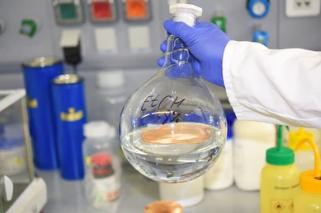
The "physical and chemical indicators" of tea refer to the physical properties, physical properties, chemical composition, chemical properties, chemical properties, and other technical indicators of tea, which are also its quality indicators. The most common of them are water extract, ash, and crude fiber, which are essential physical and chemical indicators of tea and can, to a certain extent, reflect the quality of tea. The quality of the semi-finished tea directly determines the quality of the finished tea. Therefore, before the tea is blended, the physical and chemical inspection of the semi-finished tea must be carried out, which is a vital link to ensure the quality of the finished tea. Tea physical and chemical testing is also critical for product registration, helping to ensure that only safe and compliant products are placed on the market. Accurate and verifiable safety and quality data simplifies the compliance process.
Lifeasible offers a one-stop platform for tea physical and chemical testing through a global network of state-of-the-art laboratories covering a wide range of black, green, yellow, white, and black teas, among others. Our solution covers the entire process, from sample processing to data analysis; you only need to provide the original sample. We will process and test the samples in strict accordance with the standards and provide accurate test reports.
Our solutions include:
| Tea Physical and Chemical Testing Items |
Tea Physical and Chemical Testing Items Description |
Tea Physical and Chemical Testing Methods |
| Tea Water Content Testing | Quickly and accurately measure the water content of tea. |
|
| Tea Net Content Testing | Generally refers to the net weight of tea after removing tea packaging containers and other packaging materials. | |
| Non-Tea Impurities Testing | Non-tea impurities include: tea stalks, tea seeds, animal droppings, cigarette butts, broken glass pieces, etc. | |
| Tea Ash Content Testing | Generally refers to the residual inorganic matter of tea leaves after burning at high temperature, including total ash, water-soluble ash, and solution alkalinity test, acid insoluble ash, etc. | |
| Tea Crude Fiber Testing | It mainly determines the crude fiber content of tea leaves, which is an important index to evaluate the quality of tea leaves. | |
| Tea Powder and Broken Tea Content Testing | It is mainly used to determine the total content of tea polyphenols in tea powder and crushed tea. | |
| Dry Matter Content Testing of Tea Ground Sample | The dry matter content of tea is measured to analyze the proportion of tea polyphenols and other components. | |
| Tea Volumetric Weight Testing | Measure the weight of instant tea in unit volume, which is one of the quality indicators of instant tea. | |
| Tea Compact Stacking Density Testing | Generally refers to the density of compressed tea. | |
| Tea Free-Flowing Stacking Density | Generally refers to the density of solid instant tea. | |
| Tea Particle Size Testing | Used to quickly check the matcha particle size grade. |
(1) Sample processing.
(2) Determination of tea chemical and physical indicators, as detailed in the table above.
(3) Generate test results.
(4) Data analysis and evaluation.
Lifeasible applies physical and chemical methods and means to determine the physical properties and chemical content of finished teas, semi-finished teas, and tea products. Our dedicated team provides customized solutions to ensure that our clients' needs are met. If you are interested in these services or solutions, please contact us to obtain the latest information.
Lifeasible has established a one-stop service platform for plants. In addition to obtaining customized solutions for plant genetic engineering, customers can also conduct follow-up analysis and research on plants through our analysis platform. The analytical services we provide include but are not limited to the following:
Get Latest Lifeasible News and Updates Directly to Your Inbox
Adaptive Evolutionary Mechanism of Plants
February 28, 2025
Unraveling Cotton Development: Insights from Multi-Omics Studies
February 27, 2025